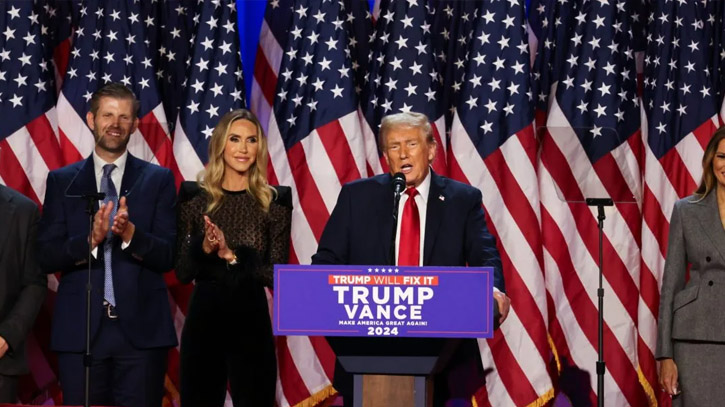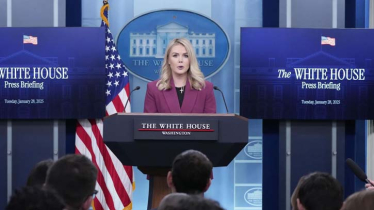
Photo : Collected
American presidential elections are a moment when the nation holds up a mirror to look at itself. They are a reflection of values and dreams, of grievances and scores to be settled.
The results say much about a country’s character, future and core beliefs. On Tuesday, America looked into that mirror and more voters saw former president Donald Trump, delivering him a far-reaching victory in the most contested states.
He won for many reasons. One of them was that a formidable number of Americans, from different angles, said the state of democracy was a prime concern.
The candidate they chose had campaigned through a lens of darkness, calling the country “garbage” and his opponent “stupid,” a “communist” and “the b-word.”
The mirror reflected not only a restive nation's discontent but childless cat ladies, false stories of pets devoured by Haitian immigrant neighbors, a sustained emphasis on calling things “weird,” and a sudden bout of Democratic “joy" now crushed. The campaign will be remembered both for profound developments, like the two assassination attempts on Trump, and his curious chatter about golfer Arnold Palmer's genitalia.
Even as Trump prevailed, most voters said they were very or somewhat concerned that electing Trump would bring the U.S. closer to being an authoritarian country, where a single leader has unchecked power, according to the AP VoteCast survey. Still, 1 in 10 of those voters backed him anyway. Nearly 4 in 10 Trump voters said they wanted complete upheaval in how the country is run.
In Trump’s telling, the economy was in shambles, even when almost every measure said otherwise, and the border was an open sore leeching murderous migrants, when the actual number of crossings had dropped precipitously. All this came wrapped in his signature language of catastrophism.
His win, only the second time in U.S. history that a candidate won the presidency in non-consecutive terms, demonstrated Trump's keen ear for what stirs emotions, especially the sense of millions of voters of being left out — whether because someone else cheated or got special treatment or otherwise fell to the ravages of the enemy within.
That's whom Americans decisively chose.
Messenger/Disha








